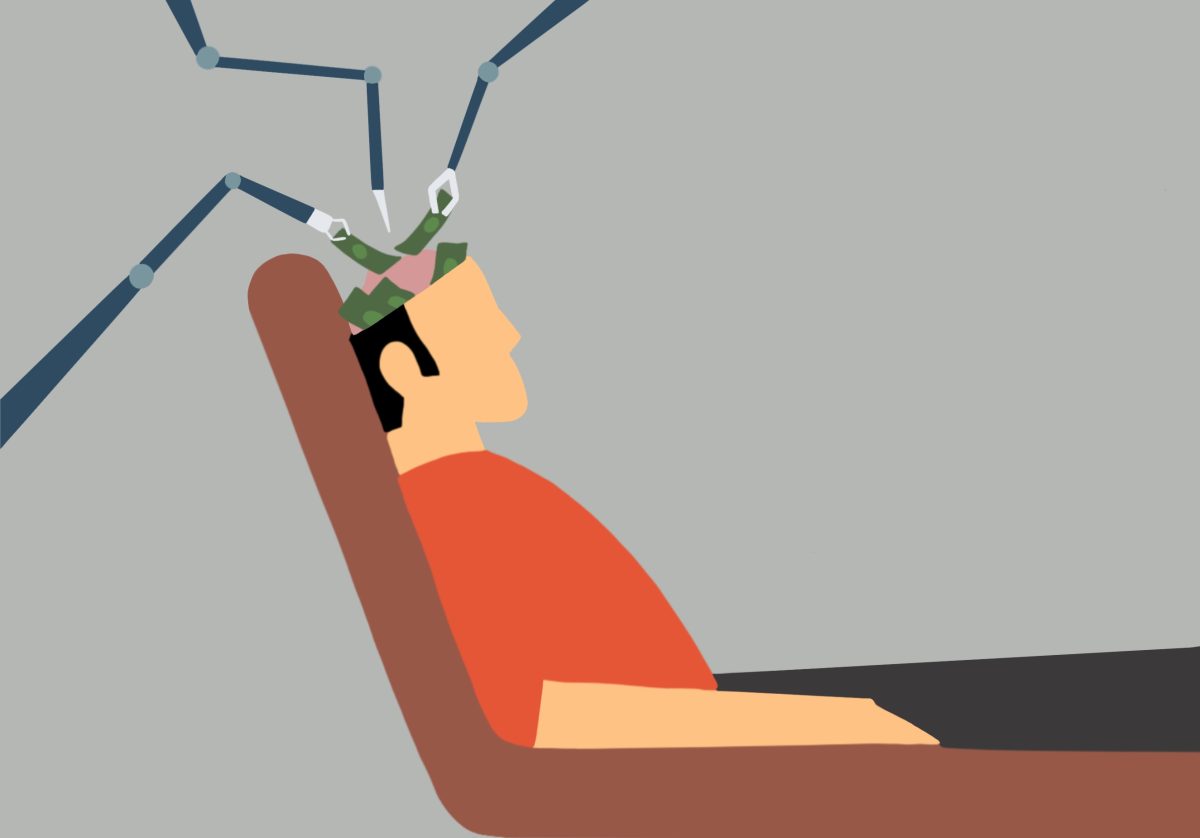I have mental health issues. These issues started at the ripe age of 12 and haven’t dissipated.
It started during my middle school days when all the awkward bodily changes started happening and new relationships were forming.
I had an overwhelming sense of discomfort within myself and my social encounters, which got better over the course of my adolescence.
Then I went to college.
Not only did these feelings of discomfort re-emerge when I moved to a new city for college, but I also graduated high school during the COVID-19 pandemic and began my college career in it, too.
Starting a college career with an abundance of mental health concerns, no medication and no therapy was a horrible introduction to young adulthood.
As I continued into my college years, I had a mental health scare that changed the way I viewed my mental well-being and strategies for coping.
My primary healthcare provider encouraged me to try therapy after putting me on proper anxiety medication. This was a life-changing moment for me.
Unfortunately, therapy in the U.S. is not always an affordable option for those who struggle with mental health issues and are interested in this resource.
Therapy sessions today range anywhere from free to $200 or more depending on factors such as location, insurance provider and the selected therapist, according to Forbes Magazine.
Porsche Gordin, founder of Peak Behavioral Health and a licensed marriage and family therapist, said she started her mental health clinic in hopes of providing an accessible space for marginalized groups of people who are often unable to receive services elsewhere due to various obstacles.
“The purpose behind that was to be more accessible to marginalized groups of people because I really didn’t see that representation at the place that I was working,” Gordin said. “I loved what I did, I just wanted to do it a little bit differently.”
Gordin said she isn’t sure there is a clear-cut way to abolish the financial barriers stopping people from seeking mental health services, but she thinks informing people, specifically young people, about their insurance plans and government-funded financial support can help make them more accessible.
Organizations like the National Alliance on Mental Illness (NAMI) help provide people with free helplines and mental health support. Additionally, receiving counseling and other mental health services through an educational institution is often free for students. Income-based therapy is another option for low-income services.
“I think mental health care along with other medical or health services need to be more affordable and they need to be more accessible,” Gordin said. “The people providing those services also need to be compensated appropriately for their expertise and their skill set.”
Ella Shaw, a second-year student at the University of Minnesota, said she’s interested in pursuing a career in this field in hopes of providing mentally struggling people with the same sense of clarity and relief that her current therapist brings to her.
Shaw said she struggles with the idea of eventually having to pick whether she, as a future mental health professional, wants to make less money by making her services more accessible, or make more money and have her services be accessible to a small portion of clients.
Proper access to therapy allows people to explore different parts of themselves in deeper ways that they maybe wouldn’t have been able to had they not tried this type of mental health service, according to Shaw.
“It’s access to being in control of yourself and being empowered in yourself,” Shaw said.
In regards to whether they think therapy is for everyone, both Gordin and Shaw said no.
While she believes in the benefits therapy services can provide to people, Gordin said it’s important to remember that every patient is different, comes from a diverse background with a unique history and doesn’t always benefit from traditional therapy sessions.
Shaw said it’s important to explore many different forms of therapy to see what works best for you before putting all your time, money and energy into talk therapy.
“I don’t think talk therapy should be the only thing somebody’s doing and I think that can be a dangerous game to play,” Shaw said. “I think dipping our toes into different types of therapy teaches us different things.”
Mental well-being is often overlooked and it’s time we acknowledge that we all have problems that we can work on. Whether it’s by going to therapy sessions or an alternative method, we all should set aside time to heal ourselves.
“Therapy is not for everyone, healing is for everyone,” Gordin said.















Sierra C.
Mar 29, 2024 at 1:07 pm
I’m a graduate student at the U of M in the Integrated Behavioral Health program, which trains future therapists. This is, unfortunately, an all too common story. It’s a frustrating reality that insurance companies continue to uphold while individual therapists try their best to navigate the challenging waters of providing accessible care and being able to live.
One resource that may be of interest is Open Path Psychotherapy Collective. I can’t link it here but, it’s a nationwide network of therapists who offer cash pay sliding scale spots in their practices (between $30-$70 per session). I have used this resource myself and I recommend it highly to anyone looking for high-quality and affordable therapy (couples, talk therapy, somatic practices, EMDR, etc can all be found through their directory).
While it may not solve every problem with affordability, it is a step in the right direction while we continue to lobby for more client-centered conditions from insurance companies.